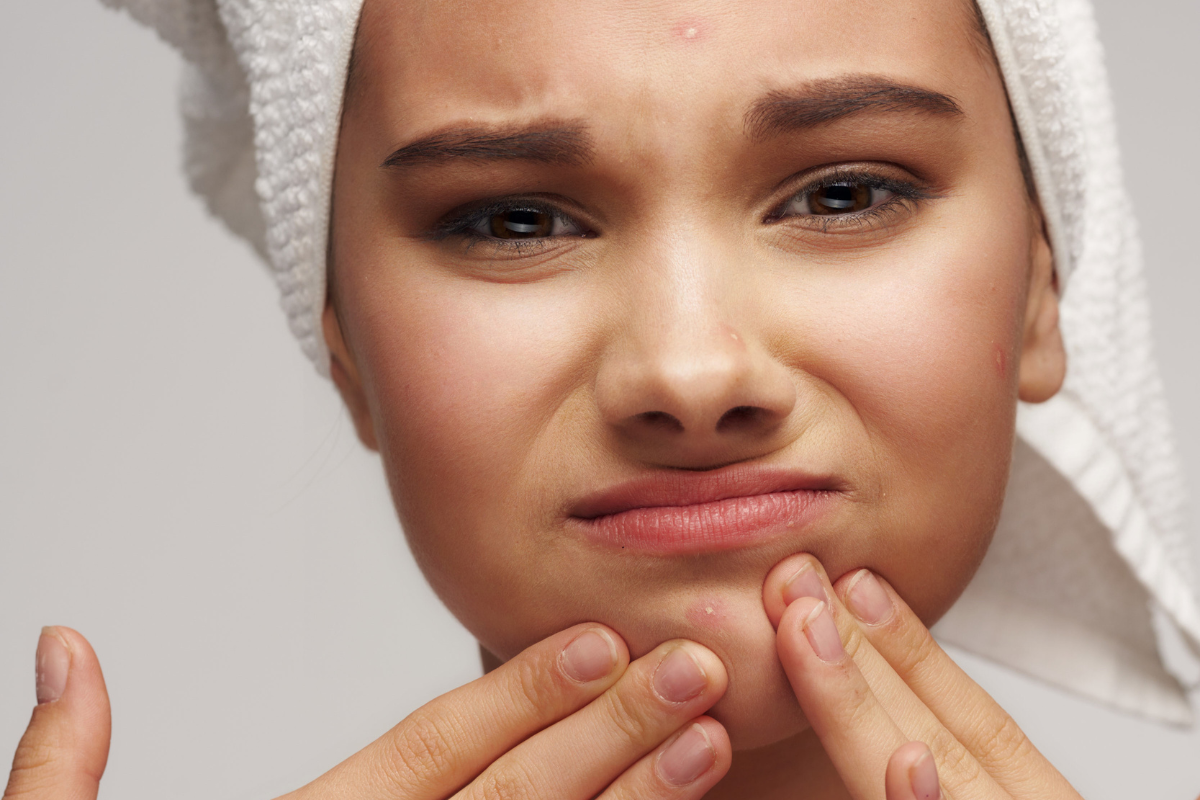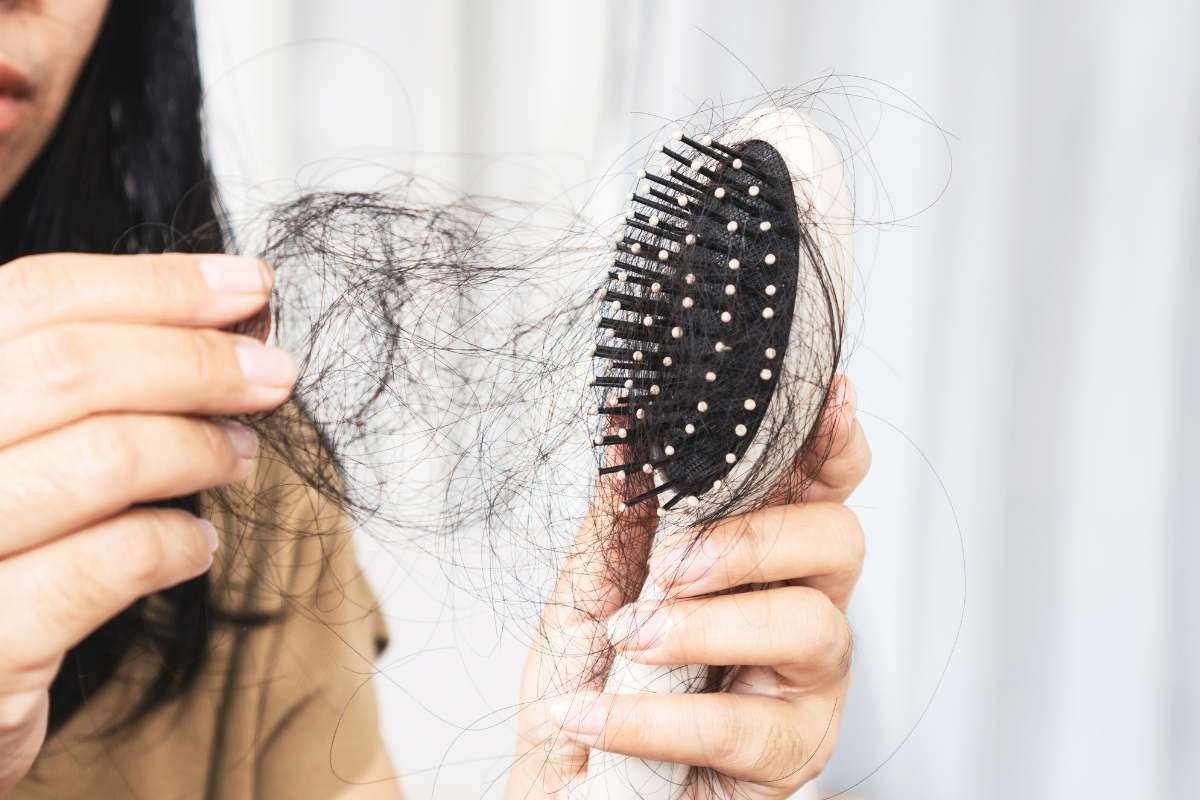Collagen - acne & skin problems

Collagen - acne & skin problems
If you're interested in improving and maintaining skin health, you've probably heard of collagen's benefits for the skin – many people use collagen for acne scars, wrinkles, dry & sagging skin, and even eczema. Collagen is also good if you are going to undergo a major operation, where the doctor has to make one or more incisions in the skin. If it is cosmetic surgery or another operation that you are going to undergo, you are probably extra careful that the scars that arise heal optimally. The collagen helps to ensure that the scar after the operation heals both well and nicely! So a tip if you are going to undergo an operation where scars will appear: start taking Collagen long before your operation.
Collagen also counteracts joint pain, improves gastrointestinal health, helps with recovery after an injury, and much, much more. But in this article we will focus on the skin and how collagen can improve both the appearance of the skin and the health of the skin!
Why are collagen supplements good for the skin?
Collagen is a naturally occurring protein which in turn consists of different amino acids. Collagen is the most abundant protein in our body, and it affects our skin at the deepest levels.
Collagen is actually what gives our skin its structure and stability – without collagen, our skin would literally fall apart. This makes it a key player in maintaining youthful and elastic skin - not to mention the glow it provides!
Just to be clear, we're talking specifically about taking a hydrolyzed collagen supplement in powder form , and not collagen creams. Supplementing with a hydrolyzed collagen supplement increases the levels of collagen in the body. Creams applied to the skin can only stay there and not enter the body.
Hydrolyzed collagen contains a smaller molecular structure. When you eat collagen, it becomes available as peptides in your bloodstream – where it is then transported to the skin and tissues that need it most. Creams do a good job of moisturizing, but they cannot restore the collagen levels inside the body.
So let's take a look at exactly how to use collagen for various skin problems.
What skin problems can collagen help with?
Collagen for wrinkles
Collagen has been a popular ingredient in the beauty industry for years. Mostly because of its proven ability to counteract fine lines and wrinkles. But if you're still not clear on why collagen is so amazing for aging skin, let's learn more.
Basically, it's about elasticity. Research has shown that collagen measurably improves skin elasticity. What does this mean? Elasticity refers to the skin's ability to stretch and "bounce back". Collagen is also an important player for the skin's firmness and plumpness.
Another important ingredient that works wonders for fighting wrinkles is hyaluronic acid. Hyaluronic acid improves the body's ability to retain moisture and also improves the ability to produce collagen.
Collagen for acne
Collagen is an important component in wound healing. As an important building block in the skin, collagen sweeps in as one of our favorites in wound healing .
How does it work? Acne creates an area in the skin that basically has a mini crisis. In every clogged pore, or pimple, there is an overgrowth of bacteria. These bacteria are the ones that cause swelling, redness, irritation and inflammation. And then most of us start touching the area.
These inflamed areas need time, and also collagen, to heal.
This is how collagen helps with acne! To begin with, simply a dietary supplement with hydrolyzed collagen can help create optimal levels of collagen in the body. This helps slow the natural decline of collagen that begins as early as age 25, and keeps collagen readily available when your body needs it most.
And when our skin is damaged by e.g. an acne breakout, collagen comes in handy to help heal the wound. Collagen plays a key role in scarring because it is used by the immune system to close the wound and form "new" skin in the area.
And what about inflammation? One of the main amino acids found in hydrolyzed collagen supplements , glycine, also works as an anti-inflammatory.
Collagen is a very effective dietary supplement for healthy skin without inflammation - collagen peptides are an important component in the treatment and healing of many types of wounds, including acne scars. Collagen helps treat this skin condition while contributing to smooth and even skin. Collagen, together with elastin, is responsible for keeping the skin healthy and elastic, as well as giving structure to the skin and counteracting inflammation in the skin.
Zinc is a mineral with anti-inflammatory properties. It can help relieve some of the redness and irritation associated with moderate to severe acne. Zinc can even help reduce the appearance of acne scars.
Biotin (B7), vitamin C, folic acid (vitamin B9), vitamin B12 (cobalamin) and vitamin D can counteract pimples, acne and blackheads in the skin, as well as reduce inflammation in the skin and heal acne scars.
Silicon is also good for fighting mild to moderate acne. It does this by firstly increasing collagen production which ensures healthy outer skin cell layers that are less prone to inflammation from the hormonal agents linked to acne.
Hyaluronic acid helps moisturize dry skin from the inside. Dryness causes the skin to produce more oil, which can lead to clogged pores and further acne.
Leaky gut, inflammation in the gut and poor immune system can cause problem skin such as acne and pimples. Collagen supplements for the immune system and food supplements with collagen for the stomach and intestines can therefore be beneficial if you have problem skin with acne and inflammation in the skin.
Collagen for eczema
At present, there is no direct evidence to suggest that collagen can prevent eczema, if we compare it to collagen's effect on acne, but we can, however, underline the role collagen plays in skin wound healing.
Eczema is much the same as any other skin ulcer – it all starts with an inflammatory stage and then continues into the healing stage. Collagen is a major player in the healing process (not to mention that one of the amino acids, glycine, is also anti-inflammatory) . So the next time you're dealing with a pesky eczema flare-up, consider taking a collagen supplement to help with the healing process.
Collagen for dry skin
Do you struggle with dry skin? Collagen can also improve the hydration of our skin. Studies have shown that an 8-week intake of collagen significantly increases skin hydration .
Collagen for cellulite
While you can't fight genetics (which is largely responsible for whether someone is prone to cellulite or not), you can count on collagen to fight the appearance of cellulite on your skin. Namely, one of the results of declining collagen levels is a thinning of the skin.
It is this thinning of the skin that makes the appearance of cellulite and stretch marks more dramatic and visible. By keeping collagen levels high (which can translate into increased firmness and elasticity of the skin), the cellulite in the skin will be minimized. Studies have shown that those who take a collagen supplement regularly have less visible cellulite.
Is collagen good for skin health?
If healthy skin is important to you, then a collagen supplement is a must (start early and be consistent/take your collagen every day) to improve and maintain skin elasticity, fight wrinkles and aid in the healing of e.g. eczema and acne.






